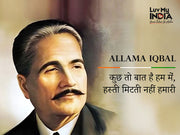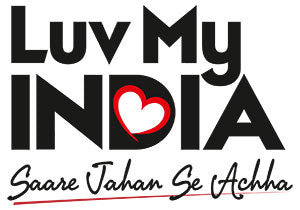
Long before independence was won, it was imagined line by line, verse by verse, in the heart of a poet who saw Hindustan not just as land, but as a living spirit. At a time when India was struggling under the weight of colonial rule, one man dared to light a spark—not with swords, but with his words.
Muhammad Iqbal was not just a poet but a man who understood the pulse of the people and who believed in the power of awakening a nation through words.
In the heart of every Indian who cherishes freedom, Saare Jahan Se Achha, Hindustan Hamara is a song that speaks their feeling with every word. But only a few remember the man who wrote those immortal lines: Muhammad Iqbal, lovingly remembered as Allama Iqbal, whose pen once sang the glories of Hindustan with unmatched devotion.
Penned in 1904, “Taraana-e-Hind” (Song of India) became one of the most beloved patriotic songs of the subcontinent. Often sung in schools, rallies and national events even today, its opening lines alone can stir a sense of patriotism:
सारे जहाँ से अच्छा हिंदोस्ताँ हमारा, हम बुलबुले हैं इसकी, ये गुलसिताँ हमारा, which means “Our Hindustan is better than the rest of the world, we are its nightingales and it is our garden.”
With these words, he gifted India a poetic prayer, which expressed not just patriotism but the soul of undivided India.
The title of Allama, meaning “the very learned one,” was bestowed upon him for his vast philosophical insight. His understanding of human nature, spirituality, identity and selfhood made him a philosopher-poet who connected well to the youth.
For him, a nation could rise only when its people become aware of their potential. In one of his powerful shayari, he writes: ख़ुद को कर बुलंद इतना कि हर तक़दीर से पहले, ख़ुदा बन्दे से ख़ुद पूछे, बता तेरी रज़ा क्या है which means “Raise yourself to such heights, that even God, before ordaining your fate, asks you—what is it that you desire?”
This was not just a poetry, it was a call to every young Indian to dream, to rise and to shape their own future.
Muhammad Iqbal's poetry was a heartfelt tribute to the Indian land, filled with references that celebrate India's unity in diversity, its rich history and its spiritual heritage.
At a time when India was under colonial rule, Iqbal gave the people something greater than resistance—he gave them a shared identity. He gave the message of togetherness when he wrote मज़हब नहीं सिखाता आपस में बैर रखना, हिंदी हैं हम, वतन है हिंदोस्ताँ हमारा which when translated in English becomes- “Religion does not teach us to bear ill-will among ourselves, we are all Indians and Hindustan is our homeland.”
At Luv My India, we believe in celebrating not just the symbols of patriotism, but the people who gave them meaning.
Our khadi flags, framed Tiranga and patriotic souvenirs are crafted not only to honour India but to evoke pride, emotion and identity. And so we remember Allama Iqbal, not just for what he wrote but for what he believed: That the spirit can overcome fear and that the heart can always find a home in the soil of Hindustan.
He was so right when he said - “कुछ तो बात है हम में, हस्ती मिटती नहीं हमारी” which means no matter how hard the world tries, we cannot be wiped out. This holds true for today’s developing India and our Luv for India.







